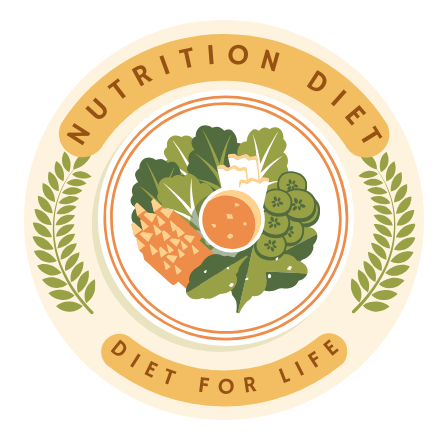For thousands of years, Ayurveda—the ancient system of holistic medicine from India—has offered profound insights into nutrition and well-being. In recent decades, modern science has begun to validate and explore these time-tested practices. Ayurveda nutrition isn’t just about food—it’s a lifestyle, a preventive medicine, and a deeply personalized system tailored to the individual’s body type, constitution (dish), seasons, and emotional state.
In this comprehensive article, we’ll dive deep into the foundational principles of Ayurveda nutrition, explore how modern science is catching up with ancient wisdom, and discover practical ways to integrate these principles into a 21st-century lifestyle.
What is Ayurveda? A Brief Overview
Origins and Philosophy
Hormones regulate nearly every aspect of our health—from energy and metabolism to mood and immunity. When hormones such as thyroid hormones, estrogen, and cortisol become imbalanced, symptoms like fatigue, weight gain, brain fog, and poor stress tolerance can arise. Hormone-sensitive eating is a targeted nutrition strategy that supports hormonal balance through personalized food choices, timing, and nutrient density. Unlike generalized diets, hormone-sensitive nutrition aligns meals with hormonal cycles and biochemical individuality. It recognizes the dynamic nature of endocrine function and how food, stress, sleep, and movement influence it.
This approach combines evidence-based functional medicine, nutritional biochemistry, and lifestyle medicine. It’s used by clinicians to support women with PCOS, hypothyroidism, adrenal fatigue, and per menopause, as well as men with estrogen dominance or cortisol deregulation. With proper guidance, individuals can reduce inflammation, stabilize blood sugar, enhance resilience to stress, and support detoxification—all of which are essential for hormonal harmony.
Understanding the Endocrine System
The endocrine system includes glands such as the thyroid, adrenals, and ovaries, which secrete hormones directly into the bloodstream. These hormones regulate vital functions such as metabolism, energy, growth, reproduction, and stress response. Three hormones central to hormone-sensitive eating are thyroid hormones (T3 and T4), estrogen (primarily estradiol), and cortisol.
The thyroid gland produces hormones that control the body’s metabolic rate. These hormones require iodine and selenium for synthesis and activation. Hypothyroidism often leads to fatigue, weight gain, and depression. Nutritional triggers include low protein intake, excessive soy, gluten sensitivity, or nutrient deficiencies.
Estrogen is critical for reproductive health, cardiovascular function, and bone density. Estrogen dominance—too much estrogen relative to progesterone—is linked to PMS, fibroids, and mood swings. Factors affecting estrogen metabolism include xenoestrogens, poor liver function, and inadequate fiber intake.
Cortisol governs stress response and circadian rhythm. Chronic high cortisol leads to insulin resistance, abdominal fat gain, and poor sleep. Skipping meals, high sugar intake, and late-night eating disrupt cortisol rhythm. Understanding how nutrition influences these systems helps tailor diets that support endocrine function.
Nutrition for Thyroid Support
The primary thyroid hormones, T4 and T3, require iodine (from sea vegetables and iodized salt), selenium (from Brazil nuts), and tyrosine (from protein-rich foods). Zinc and iron are needed for T4 to T3 conversion. People with hypothyroidism or Hashimoto’s thyroiditis benefit from anti-inflammatory diets rich in omega-3 fats, colorful vegetables, and gluten-free whole grains.
Avoiding goitrogens—substances in raw cruciferous vegetables that interfere with iodine uptake—can be helpful for individuals with iodine deficiency. Cooking neutralizes most goitrogens. Regular meals with adequate protein help stabilize blood sugar and support energy. Processed foods and refined grains can contribute to inflammation and insulin resistance. In contrast, diets emphasizing lean proteins, leafy greens, berries, and slow-digesting carbs help maintain thyroid health. Supplements may be necessary when deficiencies are present, but dietary sources are preferred for long-term management.
Estrogen Balance through Nutrition
Estrogen balance is essential not just for reproduction, but also for brain, bone, and heart health. Hormone-sensitive eating helps modulate estrogen levels through liver detoxification, fiber intake, and phytonutrients. Estrogen is metabolized in the liver, and then excreted via the gut. To support this, nutrients like B-vitamins (especially B6, B12, and foliate), magnesium, and sulfur-containing foods (e.g., garlic, onions, eggs) are critical.
Fiber from flaxseeds, vegetables, and legumes binds excess estrogen in the gut and promotes elimination. Phytoestrogens from soy, flax, and legumes can help modulate estrogen activity by binding to estrogen receptors. These plant compounds may reduce risk of breast cancer and menopausal symptoms.
Processed meats, alcohol, and BPA from plastics can contribute to xenoestrogen exposure. Estrogen-friendly eating patterns reduce inflammation, improve detox capacity, and help normalize menstrual cycles and menopausal transitions.
Cortisol and the Stress-Diet Connection
Cortisol is critical for handling acute stress, regulating blood sugar, and maintaining alertness. But chronic elevation leads to fatigue, cravings, and belly fat. Nutrition can modulate cortisol production and improve stress resilience. Key nutrients for adrenal support include vitamin C, magnesium, B5 (pantothenic acid), and adapt genic herbs like ashwagandha or rhodiola.
Blood sugar stability is essential. Skipping meals or consuming high-glycemic foods spikes insulin and subsequently cortisol. A hormone-sensitive diet emphasizes protein-rich breakfasts, regular meals, and slow-digesting carbohydrates. Foods rich in omega-3s, dark leafy greens, and fermented foods can calm the stress response by reducing inflammation. Conversely, caffeine, alcohol, and sugar-laden snacks exacerbate cortisol deregulation. Eating rhythmically and prioritizing nutrient density helps recalibrate cortisol output.
Nutrient Timing and Meal Structure for Hormonal Harmony
The timing and structure of meals significantly affect hormonal rhythms. For example, cortisol naturally peaks in the morning and declines through the day. A balanced, protein-rich breakfast supports this rhythm and stabilizes blood sugar. Midday meals should focus on sustaining energy with a mix of fiber, healthy fats, and moderate carbs. Dinners should be lighter to avoid disrupting sleep.
Intermittent fasting may benefit some individuals, especially for insulin resistance, but can be harmful for others with adrenal fatigue or low thyroid function. Customizing meal frequency based on energy levels, stress load, and metabolic health is essential. Women in particular may require more frequent meals during certain phases of the menstrual cycle.
Balancing macronutrients—proteins, fats, and carbohydrates—is crucial. Proteins support neurotransmitter production and thyroid function. Healthy fats are precursors for sex hormones. Complex carbohydrates modulate cortisol and support serotonin levels. Structured meal timing reinforces circadian cues, aiding overall hormonal health.
The Science behind Ayurveda
The gut microbiome refers to the trillions of microorganisms living in our digestive tract. These microbes play a crucial role in:
- Immunity: Helping the body recognize and fight harmful pathogens.
- Mental Health: Producing neurotransmitters like serotonin (up to 90% of serotonin is produced in the gut).
- Metabolism: Influencing how we digest food, store fat, and manage blood sugar levels.
How Ayurvedic Practices Help:
- Fermented Foods (e.g., buttermilk, pickles)
→ These are rich in probiotics that boost healthy gut bacteria. - Digestive Spices (e.g., ginger, cumin, turmeric)
→ These promote enzymatic activity, reduce inflammation, and support efficient digestion. - Seasonal Eating
→ Aligning diet with seasonal changes supports microbial diversity and keeps the gut resilient to environmental stressors.
So, Ayurveda’s ancient advice turns out to be a natural gut health strategy, long before microbiome science existed.
Chronobiology and Circadian Rhythms
What is Chronobiology?
Chronobiology is the science of how biological processes follow time-based patterns, especially in sync with:
- Daily rhythms (circadian)
- Seasonal rhythms (like changes in temperature, daylight)
Ayurveda’s Perspective:
Ayurveda recommends daily routines (Dinacharya) and seasonal routines (Ritucharya) that sync with natural cycles:
- Eating meals at regular times
- Sleeping and waking with the sun
- Adjusting food choices based on seasons (e.g., cooling foods in summer)
Modern Science Confirms:
Modern circadian biology has shown that when we eat and sleep according to our internal body clocks:
- Metabolism improves: Insulin sensitivity is better in the morning than at night.
- Hormones stabilize: Cortisol and melatonin levels balance with regular rhythms.
- Sleep quality improves: Aligning with light-dark cycles enhances restorative sleep.
In short, Ayurveda’s time-based lifestyle is backed by chronobiological research as essential for optimal health.
Personalized Nutrition
What Is Personalized Nutrition?
This is a cutting-edge field in modern science that aims to tailor dietary recommendations based on an individual’s:
- Genetics
- Metabolism
- Microbiome composition
- Lifestyle and environment
For example:
- Someone with a variant in the MTHFR gene might need more folate.
- A person with insulin resistance might thrive on a lower-carb diet.
- Microbiome analysis may suggest avoiding certain fibers or sugars.
Ayurveda’s Early Vision:
Ayurveda already practiced a form of personalized nutrition:
- Dosha-based diet: Tailoring food choices based on an individual’s constitution (Vata, Pitta, Kapha).
- Dish-based customization: Adjusting ingredients, spices, and cooking methods to balance an individual’s unique needs.
- Lifestyle context: Considering age, climate, season, mental state, and digestion in food planning.
So, Ayurveda’s holistic, personalized dietary system can be seen as a precursor to today’s gene- and data-driven nutrition models.
Desha-Specific Nutrition
In Ayurveda, “Desha” can refer to the individual constitution (Prakriti)—which is categorized into three types: Vata, Pitta, and Kapha. Each type has distinct physical, emotional, and metabolic characteristics, and therefore, requires tailored nutrition to stay in balance.
This approach is highly personalized—aligning well with modern ideas of bio-individuality in nutrition.
Vat Nutrition
Characteristics of Vata:
- Energetic qualities: cold, light, dry, and mobile
- Physically: Tends to have a thin frame, dry skin, quick mind but prone to anxiety or restlessness
- Imbalanced Vata may show as bloating, dry skin, insomnia, constipation
Nutritional Needs:
- Vata types need grounding, warm, oily, and hydrating foods to balance their airy and dry tendencies.
Best Foods:
- Cooked grains like rice and oatmeal → Easy to digest, hydrating, grounding
- Root vegetables (sweet potatoes, carrots) → Earthy, dense, and stabilizing
- Nuts and oils (almonds, sesame oil) → Provide healthy fats for dryness and energy
- Warm milk, ghee, stews → Nourishing, warm, and lubricating to soothe Vata
Foods to Avoid:
- Cold salads, raw vegetables → Increase cold/dry qualities
- Carbonated drinks → Introduce air/gas, which increases Vata’s instability
Modern parallel: Vata nutrition mirrors anti-inflammatory and digestive support diets—warm, moist, and fat-inclusive foods support gut health and nervous system balance.
Pitta Nutrition
Characteristics of Pitta:
- Energetic qualities: hot, sharp, intense
- Physically: Medium build, strong digestion, competitive personality
- Imbalance signs: Acid reflux, skin rashes, irritability, inflammation
Nutritional Needs:
- Pittas need cooling, calming, and mildly spiced foods to balance internal heat and intensity.
Best Foods:
- Sweet fruits (melon, mango, peaches) → Cool, hydrating, pacify heat
- Leafy greens, cucumbers → Detoxifying and cooling
- Dairy, grains like barley and rice → Soothing, neutral energy
Foods to Avoid:
- Spicy foods, alcohol, sour cream → All increase internal heat and digestive fire
Modern parallel: This aligns with diets for people with inflammation or GERD—emphasizing anti-inflammatory and low-acid foods.
Kappa Nutrition
Characteristics of Kapha:
- Energetic qualities: heavy, slow, oily
- Physically: Solid build, strong immunity, calm nature
- Imbalances: Weight gain, sluggishness, congestion, emotional lethargy
Nutritional Needs:
- Kaphas need light, dry, and stimulating foods to counter their heavy, slow nature.
Best Foods:
- Legumes, leafy greens → Light and fiber-rich, help detoxify and energize
- Spices (ginger, mustard seed, turmeric) → Boost digestion and circulation
- Apples, pears, cranberries → Astringent and drying fruits that reduce excess moisture
Foods to Avoid:
- Dairy, oily foods, sweets → These increase heaviness, mucus, and sluggishness
Modern parallel: Similar to low-glycemic or weight-management diets—emphasizing lean, dry, and warming foods to boost metabolism and reduce water retention.
Seasonal Nutrition (Ritucharya)
Spring (Kappa Season)
- Focus on light, warming foods
- Favor pungent, bitter, and astringent tastes
- Avoid dairy and cold foods
Summer (Pitta Season)
- Cooling, hydrating foods
- Favor sweet, bitter, and astringent tastes
- Avoid spicy, salty, sour foods
Fall/Winter (Vat Season)
- Warming, moist, grounding foods
- Favor sweet, sour, salty tastes
- Avoid raw, dry, cold foods
Case Studies and Scientific Evidence
Ayurveda and IBS (Irritable Bowel Syndrome)
Irritable Bowel Syndrome (IBS) is a complex digestive disorder characterized by symptoms like bloating, abdominal pain, gas, and irregular bowel movements. It often lacks a clear medical cause and can be difficult to treat with conventional methods alone. Recent studies have shown that Ayurvedic diets tailored to an individual’s constitution (or dosha) can significantly reduce IBS symptoms. Unlike the generalized low-FODMAP diet—which eliminates certain fermentable carbohydrates—Ayurveda takes a personalized approach by considering the individual’s digestive strength, emotional state, and doshic imbalances. This often involves the use of warm, moist, and easy-to-digest foods, along with calming herbs and lifestyle practices. As a result, Ayurvedic interventions may offer more holistic and sustainable relief from IBS symptoms compared to one-size-fits-all approaches.
Diabetes and Ayurveda
Type 2 diabetes is a chronic metabolic condition marked by insulin resistance and elevated blood sugar levels. Ayurveda has long recognized and addressed this condition—referred to as Madhumeha—through a combination of herbs, diet, and lifestyle management. Scientific research now supports the effectiveness of certain Ayurvedic herbs like Gymnema Sylvestre (Gurmar), Bitter Melon (Karela), and Turmeric (Curcumin), all of which have demonstrated hypoglycemic effects in clinical settings. These herbs help regulate blood glucose levels, reduce insulin resistance, and support pancreatic function. When combined with Ayurvedic dietary guidelines—such as avoiding heavy, sweet, and processed foods—and incorporating regular exercise and stress reduction techniques, these interventions provide a comprehensive approach to managing Type 2 diabetes. Clinical studies show that patients following Ayurvedic protocols often experience improved glycemic control and overall metabolic health.
Mental Health and Diet
Ayurveda and modern neuroscience both emphasize the powerful connection between the gut and the brain, known as the gut-brain axis. This relationship is crucial for mental health, as a large portion of neurotransmitters like serotonin are produced in the gut. Ayurveda has long advocated for diets that support digestive health as a means of promoting emotional balance. Foods such as whole grains, cooked vegetables, and warm, nourishing meals form the foundation of what Ayurveda calls a Sattvic diet, which is believed to promote clarity, calmness, and mental stability. Additionally, adaptogenic herbs like Ashwagandha are used to combat stress, reduce cortisol levels, and enhance resilience to anxiety and fatigue. Modern research aligns with these principles, confirming that gut-friendly diets and herbal adaptogens can positively influence mood, stress response, and cognitive function. This convergence of ancient wisdom and modern science reinforces the value of dietary interventions in supporting mental well-being.
Conclusion
In an age where chronic diseases, stress, and lifestyle imbalances are on the rise, the wisdom of Ayurveda offers a much-needed path to restore equilibrium. Ayurveda nutrition, rooted in the belief that food is not only sustenance but also medicine, offers more than just dietary guidelines—it provides a philosophy for living in harmony with oneself and the environment.
What makes Ayurveda nutrition particularly powerful is its personalized and preventative nature. Unlike one-size-fits-all diets, Ayurveda recognizes that each individual is unique. By identifying one’s dish and understanding its specific needs and imbalances, Ayurveda enables us to make food and lifestyle choices that support optimal health over the long term. This is not merely a dietary system, but a lifestyle science—comprising food, routines, mental health, and connection with nature.
Modern nutritional science, once focused solely on calories, macronutrients, and reductionist views, is now beginning to align with Ayurveda principles. Concepts like the gut micro biome, circadian rhythms, personalized nutrition, and the mind-body connection are finally validating what Ayurveda texts have stated for millennia. Science is catching up to ancient insights, and the integration of these two approaches holds incredible potential.
However, embracing Ayurveda does not require us to reject modern medicine or technology. The true strength lies in synthesis. We can—and should—use data-driven insights, lab diagnostics, and clinical evidence while simultaneously honoring age-old traditions that emphasize balance, seasonal living, mindfulness, and natural healing. This hybrid approach offers the best of both worlds: the precision of modern science and the deep intuition of Ayurveda.
For anyone seeking not just to manage illness, but to build resilience, vitality, and mental clarity, Ayurveda nutrition provides a timeless roadmap. It’s not about exotic super foods or rigid rules—it’s about simplicity, intentionality, and attunement to your body’s signals.
As our world continues to globalize and urbanize, the demand for systems that foster holistic well-being—rather than isolated symptom treatment—will only grow. Ayurveda is uniquely positioned to meet this demand. The more we explore and validate its principles through research and personal experience, the more evident it becomes that this ancient system is not outdated, but profoundly relevant.
In reconnecting with these principles, we don’t just learn how to eat—we learn how to live. And in doing so, we create a future of health, harmony, and wholeness—for ourselves and the planet.
SOURCES
Christiane Northrup (2001). The Wisdom of Menopause. Bantam.
→ A holistic guide to estrogen balance through nutrition and lifestyle.
Sara Gottfried (2013). The Hormone Cure. Scribner.
→ explores natural and dietary approaches to correct hormonal imbalances.
Aviva Room (2021). Hormone Intelligence. Harper One.
→ A detailed roadmap to balancing thyroid, cortisol, and estrogen naturally.
Lara Braden (2018). The Period Repair Manual. Green Peak Press.
→ Nutrition-based solutions for hormonal and menstrual health.
Alan Christianson (2013). The Adrenal Reset Diet. Harmony Books.
→ Cortisol-focused dietary strategies for stress and metabolism.
Isabella Wentz (2016). Hashimoto’s Protocol. Harper One.
→ Thyroid nutrition strategies based on autoimmune thyroid disorders.
Amy Myers (2015). The Thyroid Connection. Little, Brown Spark.
→ Integrative nutrition advice for thyroid and metabolic repair.
Shawn Talbot (2007). The Cortisol Connection. Hunter House.
→ Describes how nutrition influences cortisol and weight gain.
David Ludwig (2016). Always Hungry? Grand Central Life & Style.
→ focuses on insulin, cortisol, and fat storage dynamics.
Mark Hyman (2008). Ultra Metabolism. Scribner.
→ Discusses how food influences hormonal and metabolic function.
Elizabeth Lip ski (2012). Digestive Wellness. McGraw-Hill Education.
→ Connects gut health with hormonal regulation.
Marion Nestle (2006). What to Eat. North Point Press.
→ a critical look at food quality and its role in long-term endocrine health.
James Wilson (2001). Adrenal Fatigue: The 21st Century Stress Syndrome. Smart Publications.
→ Cortisol-focused strategies to heal adrenal dysfunction with food.
Terry Wahl’s (2014). The Wahl’s Protocol. Avery.
→ Nutritional strategies for autoimmune-related hormonal issues.
Kelly Leveque (2017). Body Love. Harper Wave.
→ Emphasizes blood sugar and hormonal stability through nutrient-dense eating.
Ben Greenfield (2020). Boundless. Victory Belt Publishing.
→ A performance-based approach to hormonal optimization through diet.
Dates Kharrazi an (2010). Why Do I Still Have Thyroid Symptoms? Morgan James Publishing.
→ Functional medicine strategies for persistent thyroid imbalance.
Josh Axe (2016). Eat Dirt. Harper Wave.
→ explores the gut-hormone connection and immune-based nutrition.
Joel Fuhrman (2011). Super Immunity. Harper One.
→ Plant-based nutritional strategies for hormonal and immune harmony.
Chris Dresser (2014). Your Personal Pale Code. Little, Brown Spark.
→ Whole-food, ancestral nutrition for hormonal healing.
Julia Ross (2012). The Mood Cure. Penguin.
→ How amino acids and diet affect neurotransmitters and hormones like cortisol.
Nora Gedgaudas (2011). Primal Body, Primal Mind. Healing Arts Press.
→ a high-fat, nutrient-dense approach to hormonal and brain health.
Stephanie Estimate (2021). The Betty Body. Victory Belt Publishing.
→ Nutrition and bio hacking for female hormone balance.
HISTORY
Current Version
June 11, 2025
Written By
ASIFA




